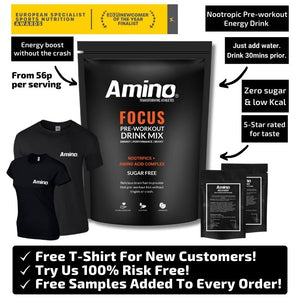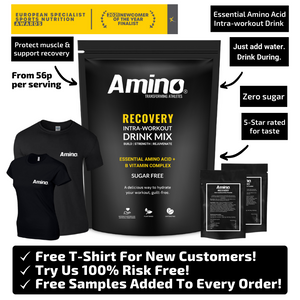You’ve got a new healthy eating plan and are fully on board the dieting bandwagon – but what can you do to ensure you don’t fall off? To help you along the way, here are 6 of the most common mistakes – and what you can do to avoid them.
1. GOING BLAND AND BORING
Bored of your diet? If so, it probably won’t be long before you’re reaching for your old fast food favourites. But healthy eating doesn’t have to be dull and flat – it should tickle your tastebuds!
To liven up your new diet, reach for fresh herbs and spices. Herbs such as rosemary and thyme give another dimension to vegetables while mint and chives add personality to a salad.
Spices are great for pepping up a meal – and some of them have weight loss benefits too. Chilli, ginger and capsaicin can boost thermogenesis – your body’s ability to produce heat from burning calories – which makes them tasty additions to a meal as well as healthy ones [1].
2. Not taking time to re-train your tastebuds
Although it may take some time, training your taste buds to enjoy healthy foods is important if you want to improve your diet. Some people think they have to go cold turkey, but by gradually reducing sugary and salty foods while slowly exposing yourself to healthier alternatives, you can make the transition easier on yourself and develop new habits that will stick.
3. CUTTING NUTRIENTS WHILE CUTTING FOODS
To diet successfully, you’ll need to cut out some foods. But this doesn’t mean that you should cut down on your nutrition. Your body still needs fuel to function and repair itself, which means that you need fibre-rich fruits and vegetables, wholegrains and more protein!
You'll need to keep track of your calorie intake to start off with as it’s essential to be aware of how much food and calories you eat each day as it relates to your overall goal. Use a Total Daily Energy Expenditure (TDEE) calculator to work out your goal.
Should you go vegan? Research suggests that vegetarian and vegan diets can lead to significantly more weight loss [2]. This may be because it helps you to cut out certain carbs or fats. If you want to give it a go, limit highly processed plant-based alternatives, eat lots of fibre-rich fruit and vegetables and hit your protein goals. But remember just because it’s vegan doesn't mean overdoing it, avocados, nuts are a great source of nutrients and healthy fats, but if you're struggling to stay on track with your goals you might want to reconsider your portions.
Related: Plant-Centered Eating: What It Is and Why You Should Consider It
4. SKIPPING STRENGTH TRAINING
Cardio is super for your cardiovascular health but if you really want to shift the pounds you’ll need to build up some strength.
Muscles burn more calories than fat, even at rest [3]. This means that the higher your muscle mass, the faster your metabolism will be. If you have access to a gym, hit the resistance machines and work on your legs, core, arms and shoulders. If you don’t have any equipment, body weight exercises such as push-ups are good alternatives. To protect your muscle mass and aid recovery after a workout, try Amino Recovery.
Related: Strength Training Benefits for Women
5. FAILING TO PLAN
A healthy eating plan requires some preparation, so if you don’t have a plan, you may find yourself resorting to convenience. Pick a day to plan your week’s meals and buy the ingredients you need in advance. To save time, you may want to bulk cook several meals and freeze them – Future You will be thankful for a pre-prepared tasty, healthy meal after a long day.
6. LEAVING OUT PROTEIN
If you’re cutting down on saturated fat and meat, you could inadvertently be lowering your protein intake. Protein is a dieter’s friend as your body has to work harder to digest protein than fats or carbohydrates. This means it uses more calories while also leaving you feeling fuller. Try lean meats such as turkey, and if you’re trying to eat more plant-based foods, introduce plenty of nuts, seeds and pulses into your brand-new diet.
Related: Why the Type of Protein You Eat Can Affect Your Workouts?
ENJOYED THIS ARTICLE?
References
[1] https://www.sciencedirect.com/science/article/abs/pii/S0031938406000540?via%3Dihub; https://pubmed.ncbi.nlm.nih.gov/27899046/
[2] https://link.springer.com/article/10.1007/s11606-015-3390-7
[3] https://universityhealthnews.com/daily/nutrition/8-ways-to-speed-up-your-metabolism/






